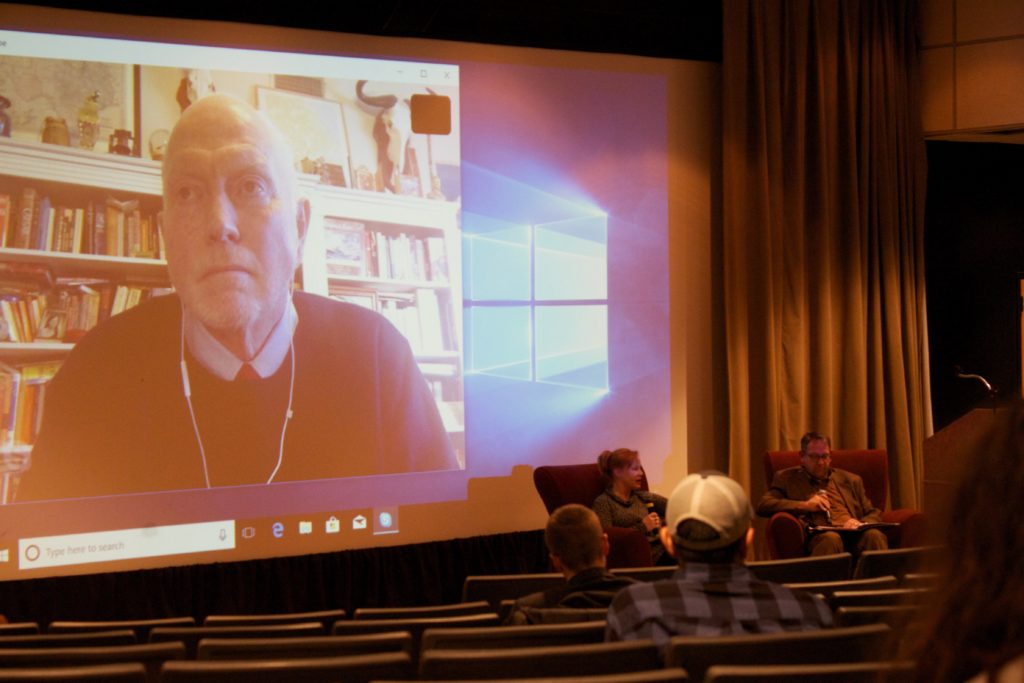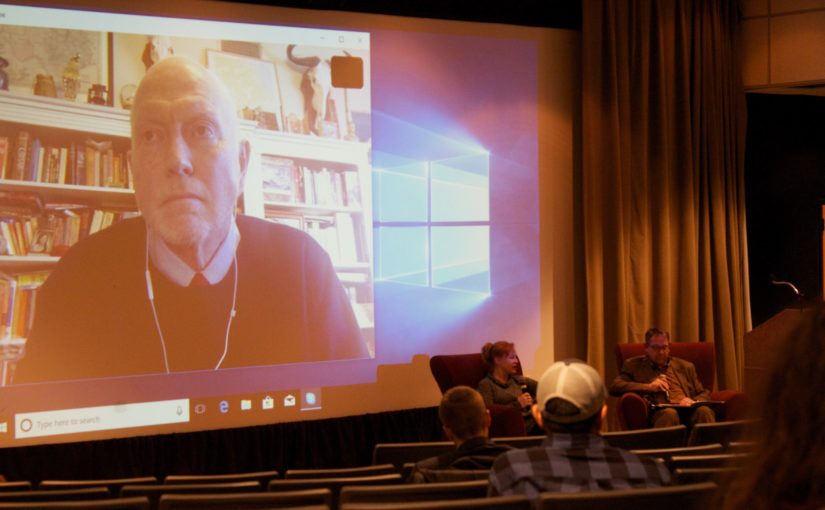
The Questions came from both the moderator and the audience.
The Northern Plains Ethics Institute at North Dakota State hosted the second terrorism panel for the year on Nov. 14 with two expert speakers at the forefront of the conversation. Kara Careaga, a U.S. Immigration and Customs Enforcement (ICE) agent, and Roby Barrett, who is an expert in intelligence and security operations, spoke at the event. The moderator for the event was Jeffrey Bumgarner, the head of the criminal justice and political science and department. Barrett was unable to be present for the event, so he used Skype to partake in the conversation.
Barrett said that since 9/11 the United States has been “playing whack-a-mole” when it comes to dealing with terrorism. He said this approach stems from our invasion of both Iraq and Afghanistan and that it was a mistake. Now, according to Barrett, the program is focused on taking out key elements in the hopes of protecting the homeland. Barrett said this approach limits the United States’ scope and it should expand to include long-term strategy.
There are many threats facing our country abroad, and Barrett said the United States needs to look at each situation on a case-by-case basis to determine whether action is required. In Iraq and Syria, Bumgarner said our nation-building strategies are too Western-centric. Bumgarner said the monarchies in the Middle East, like Saudi Arabia, have better human rights records than the republics, despite the fact that monarchies are not a Western style of government.
Barrett also said more strategic small special operations need to be employed rather than large ground insurgencies like in Iraq and Afghanistan. Small assassinations and military action that could not be carried out in the United States could prevent those people from reaching the United States, according to Barrett.
“Unfortunately, when administrations start making policy to disregard laws, that’s when things get very gray and confusing and a little scary.”
– Kara Careaga
For Careaga, the dominant technique in her field of law enforcement for dealing with domestic terrorism is tightening the rules for foreign citizens entering the country. This might not be popular, but Careaga said, “If we’re talking about safety and not political correctness or feelings, we have to look at the statistics.” Careaga used the “Muslim ban” as an example and said the countries on the list are not all Muslim majority countries, but they all have a bad track record when it comes to record keeping, harboring terrorism and non-cooperation with the U.S.
A large issue that Careaga said she faces is that the attorney general for different states and administrations don’t always follow the rule of law. Careaga said law enforcement should be able to rely on their higher-ups backing them up, but she said they don’t always stick to the script. “Unfortunately, when administrations start making policy to disregard laws, that’s when things get very gray and confusing and a little scary,” Careaga said.
In the case of the Obama administration, Careaga said she has heard that former President Barack Obama deported more people than any other modern president, which is something she disputed. Careaga said the public might be conflating a process where people are barred from entry into the United States without actually being arrested. They are brought into the country and then deported. It was actually very difficult to deport people during the Obama years, according to Careaga. “Basically, our hands were tied. We could have violent criminals that are here illegally, and we were not allowed to deport them,” Careaga said.
An issue that both speakers agreed on and that Bumgarner said was an understatement was that the United States and its allies have not only a great system, but also a system like no other. Navigating the cultures, laws and ethics of non-Western countries is key to tackling these problems.
